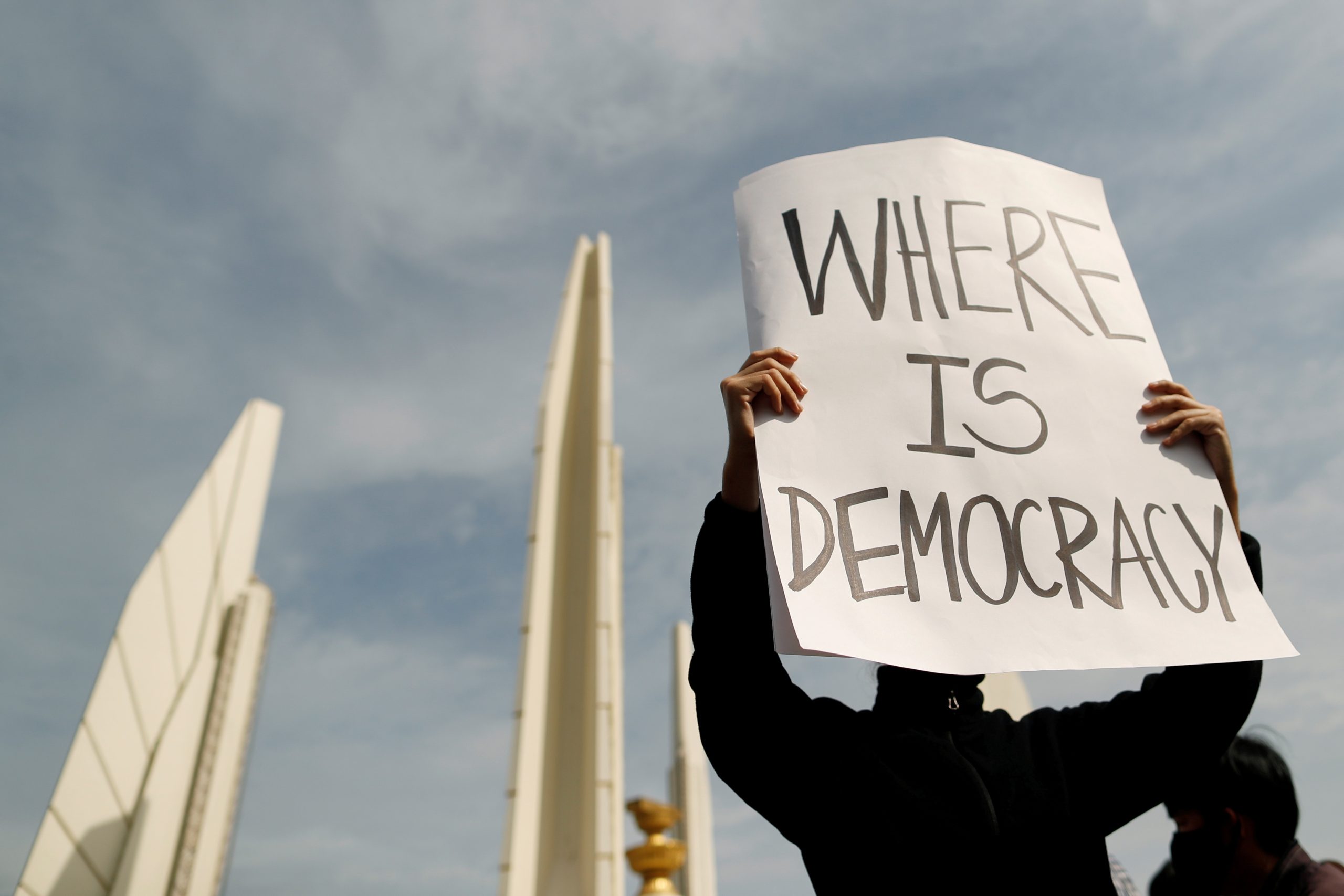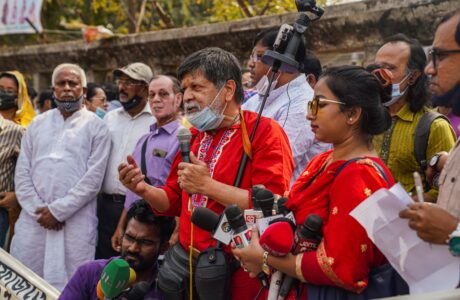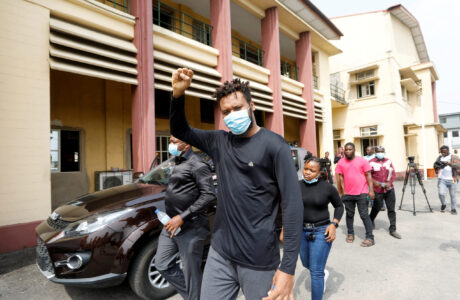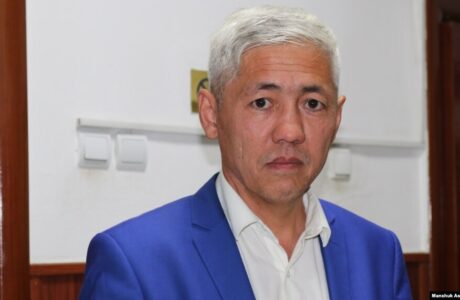Sedition, national security and ‘public order’ laws have been used to unfairly detain and prosecute those peacefully exercising their right to protest. TrialWatch is monitoring cases in Hong Kong, Thailand, Belarus & elsewhere concerning protesters being targeted.
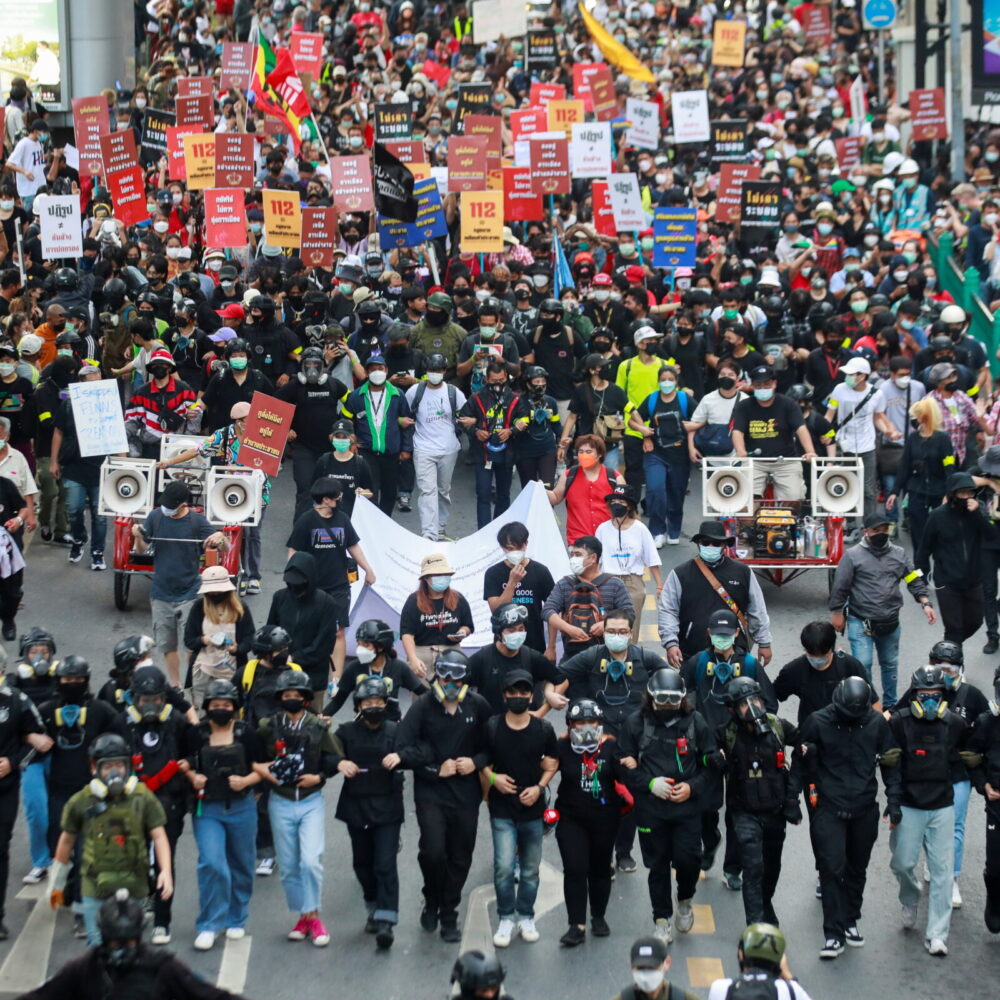
CFJ and TrialWatch Expert the Honourable Kevin Bell AM KC submitted an amicus brief to the Bangkok Criminal Court saying Thailand should dismiss the case against 22 protest leaders charged with insulting the monarchy – otherwise known as lèse-majesté — sedition, and a range of public order offenses, and adhere to its international human rights obligations.
The absurdity of this situation is highlighted by the fact that the defendants are charged with lying that the King was not in Thailand during certain periods at the same time as defense lawyers have been prevented from accessing routine travel records.
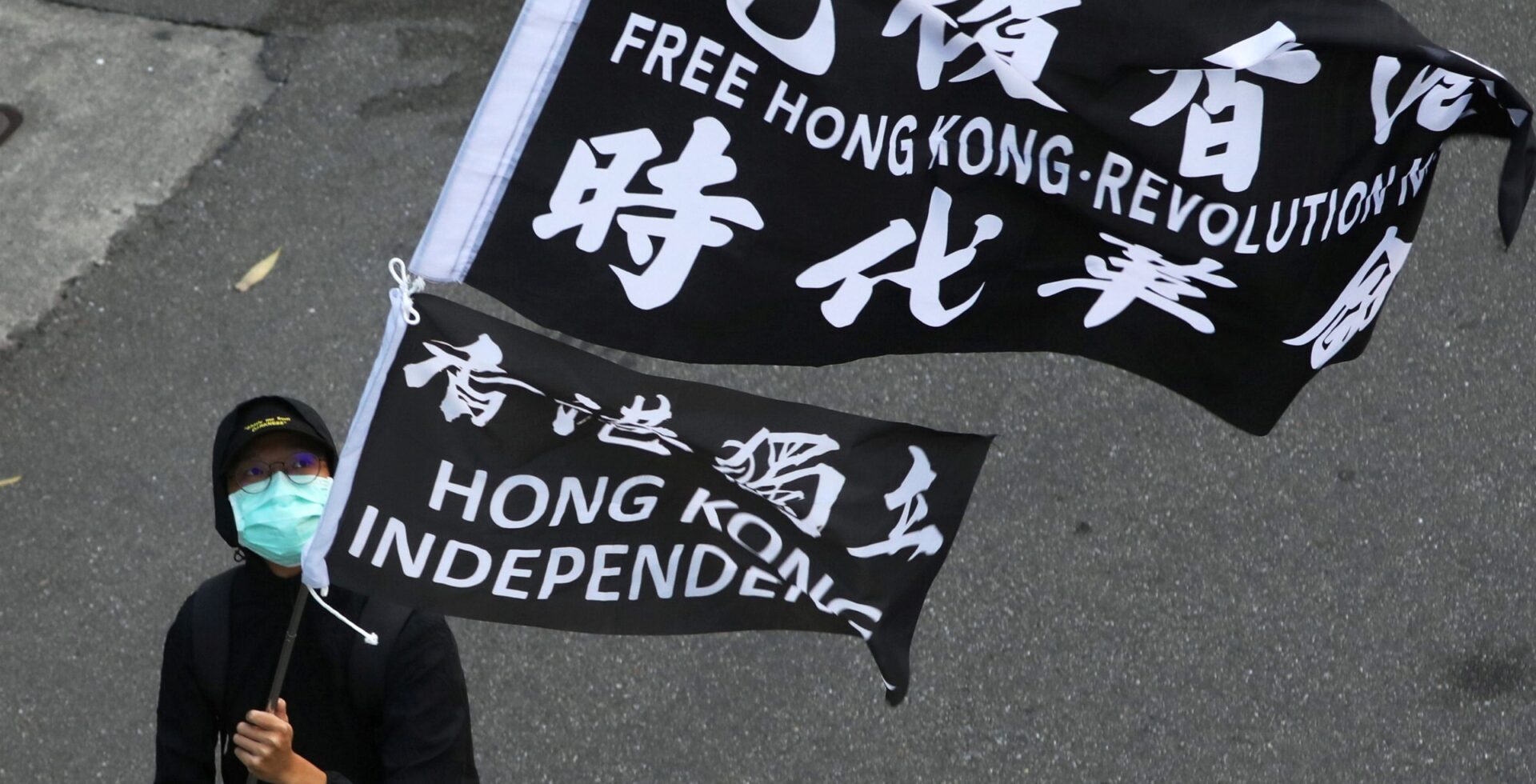
Nine-Year Sentence For Protester in Hong Kong
Tong Ying-kit was convicted under the National Security Law of ‘inciting secession’ & ‘terrorist activities’ for displaying the popular protest slogan “Liberate Hong Kong Revolution of Our Times” & colliding with police officers while on his motorbike. He was given a severe nine-year sentence, despite the fact that the court acknowledged his conduct was not “the worst of its kind.”
The authorities used this first case not to punish serious criminal conduct but as an exemplar to chill speech and conduct by the general public.
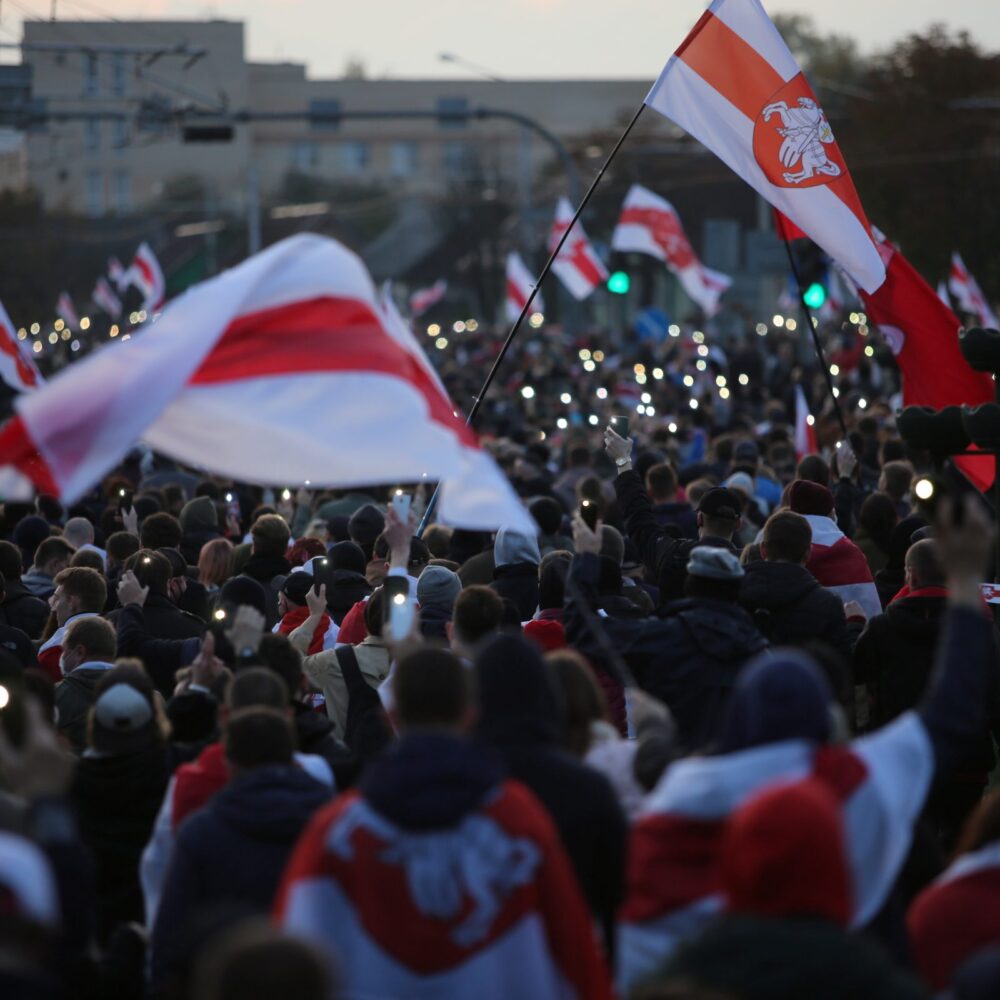
The ABA Center for Human Rights and Human Rights Embassy monitored 15 protest-related cases as part of TrialWatch, one of which was brought against a human rights lawyer.
The cases show Belarus’s assembly line of injustice in action. The defendants were generally arrested after or in the vicinity of protests and detained pending trial. Some were actually protesting; others happened to be in the wrong place at the wrong time and were swept up in the arbitrary arrests.
- In one case, a man was arrested while praying for the victims of violence in the country.
- In another, an electrician who said he was walking home with his wife and child past the protests was part of a mass roundup of 150 people.
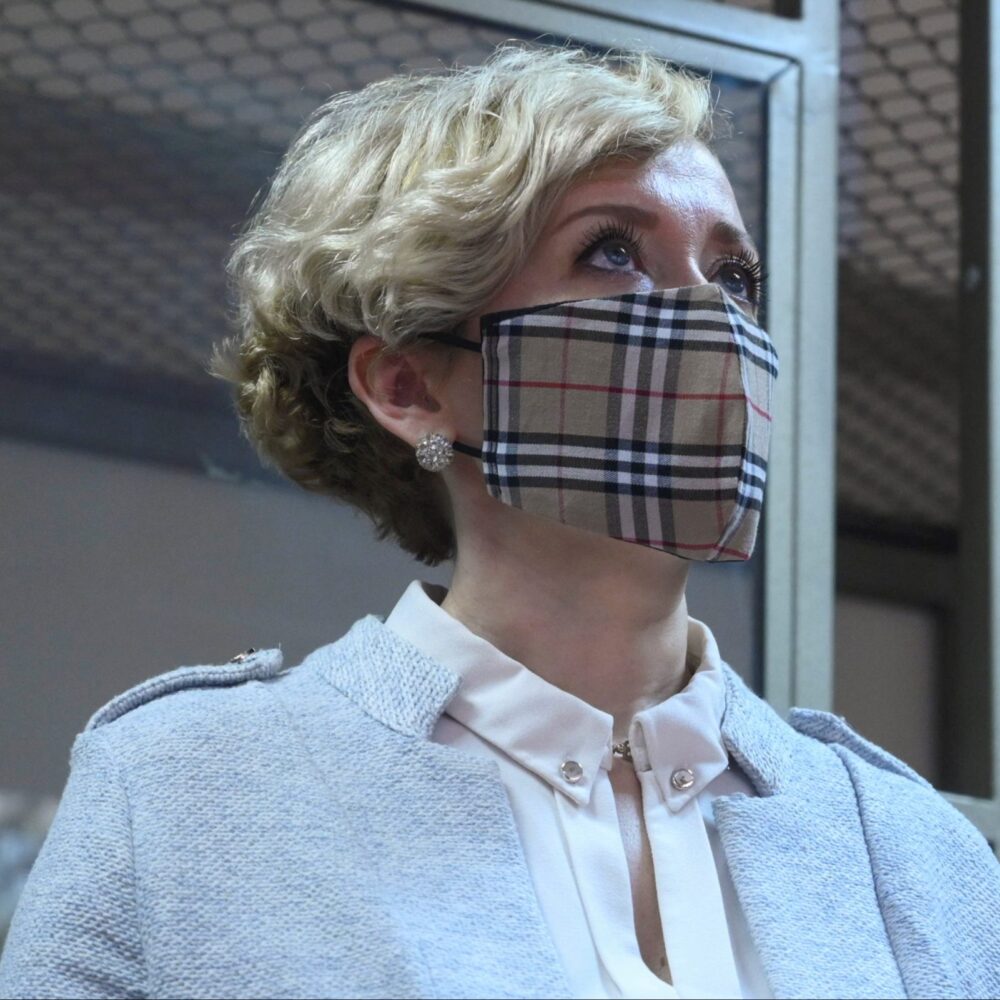
Anastasia Shevchenko was convicted of participating in an ‘undesirable organization’ for holding up a flag that said “#FEDUP” at a peaceful protest and speaking at a meeting about an organization that advocated for free and fair elections. This conviction—in the first criminal case under the ‘undesirable organizations’ law—followed arbitrary house arrest that prevented her from seeing her terminally ill daughter and invasive hidden-camera surveillance.
The proceedings seem to have been intentionally cruel, with the court denying Ms. Shevchenko the right to visit her dying daughter and weaponizing surveillance footage.
